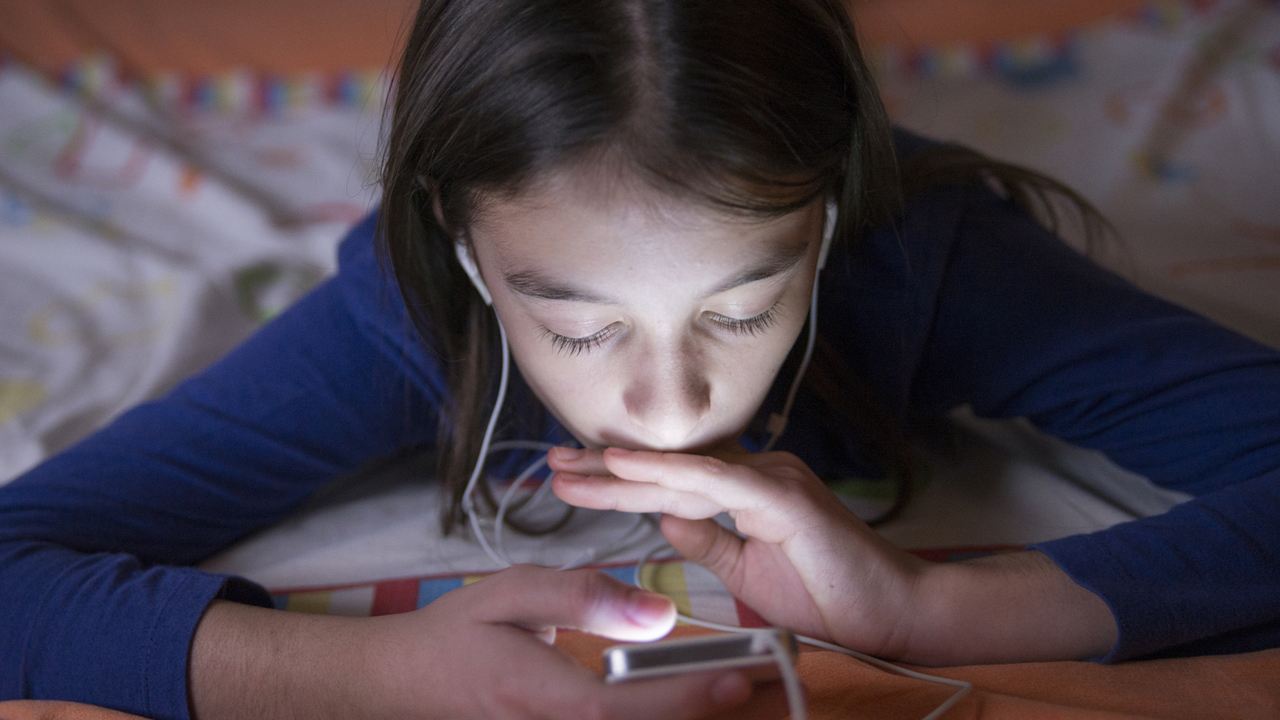American pediatricians have become more tolerant of electronic devices in the hands of children.

Source: Huffington Post The
babies that are born today immediately enter the digital environment. They are surrounded by screens, gadgets, cables and everything related to high technology. Children from an early age watching cartoons on tablets and phones. If earlier mothers entertained crying babies with rattles, now they are doing the same with the bright screens of their phones and playing music or video. All this has its positive and negative points.
Pediatricians have been studying the impact of modern technology on children for many years and make recommendations based on the results of observations. The American Academy of Pediatrics (American Academy of Pediatrics, AAP) recently published a new set of recommendations on the use of electronic devices in families with children.
These recommendations apply to all ages of children and adolescents, from birth to the time of adulthood. Interestingly, the new recommendations are much softer than the previous ones. Doctors recognized that modern children will not be able to avoid contact with the world of high technology. They face them constantly, literally every day, many times. To avoid the negative effects of the digital environment on the child’s immature mind, pediatricians recommend families to develop a “healthy media diet” by controlling the flow of information flowing into the eyes and ears of children from multiple screens.
AAP now has about 66,000 pediatricians and other professionals working with children in areas such as the health, safety and quality of life of children and adolescents. According to representatives of this organization, parents should develop a plan that will help with the use of children to use electronic devices. Experts say that the "information diet" should be balanced, it should harmoniously alternate educational and entertainment resources.
“Families need to think about how their children use media resources, parents are obliged to talk with children about it, trying to make sure that the child has enough time for entertainment, talk, sleep and food,” says Jenny Radeski, a specialist who participated in developing recommendations of the AAR. “It is important to understand that parents should act as“ media mentors ”for their children. This means that parents should teach children to use media resources as a tool for creativity, communication and learning. ” A list of recommendations for younger children is set forth here . Recommendations for older children and teenagers can be found here . The recommendations were published by experts on October 21, and in November 2016 they will be placed in the November issue "Pediatrics ".
According to representatives of AAR, modern media resources can serve as an entertaining and educational platform, you only need to select resources wisely. Starting from one and a half years, you can start to show educational programs like Sesame Workshop and PBS. Now there are many foreign and domestic educational and entertainment channels on YouTube. At the same time watching these programs and programs parents need with their children in order to explain to the kids what is happening on the screen.

For students and teenagers, a balanced “digital diet” is also needed. In this case, it is more difficult to follow its implementation than in the case of working with children. But it must be done. “Parents should help children organize their media library, explain the importance of working with some materials and the harm with others,” says Megan Moreno, another representative of the AAR group. "The rational use of media resources in the family should be at the forefront."
Problems begin from the moment when media content begins to replace children with physical activity, direct study of the surrounding world and interaction with it. This is critical for education. If children spend too much time behind the screen - it hurts their nervous system, disrupts sleep and leads to changes in behavior. There are resources that can help parents identify content that is appropriate for their children.
Among other recommendations it is worth highlighting the following:
- Children under 18 months should not be introduced to media resources, the only exception is communication with the help of video chats . According to pediatricians, chatting on Skype, Facetime and other instant messengers using video does not harm children, but on the contrary, helps them gain social skills;
- For children from one and a half to two years old, you can gradually introduce familiarity with thematic digital media resources. Watch programs and programs with children, explaining what is happening on the screen;
- For children from 2 to 5 years old, it is necessary to limit the work with electronic devices to 1 hour per day. Children need to be given to watch only high-quality content. Parents need to view all this with their children, answering questions and explaining what is happening;
- For children over 6 years old, it is worthwhile to set a certain limit on the time of working with media resources. You also need to make sure that all this does not affect the behavior of the child, his relationship with parents, physical activity and the quality of sleep;
- It is necessary to establish zones free of digital equipment in the apartment. This may be, for example, a bedroom;
- Parents should explain to the child the rules of working on the Web, as well as the basics of information security. It is necessary to clarify the importance of respecting people both online and in everyday life.

“Parents today play a very important role in the digital life of their children, for example, helping them to behave correctly online and offline. AAR wants to help parents with the help of the developed recommendations to ensure the positive impact of digital media on children's lives, ”said Linda Reid Chassiakos, AAR spokesman. “Despite the fact that the digital environment is constantly changing, some rules set by parents must remain unchanged.”
AAR representatives say that the recommendations of this organization should not be taken as dogma. Each family is unique, and the recommendations should be used based on the prevailing circumstances.
